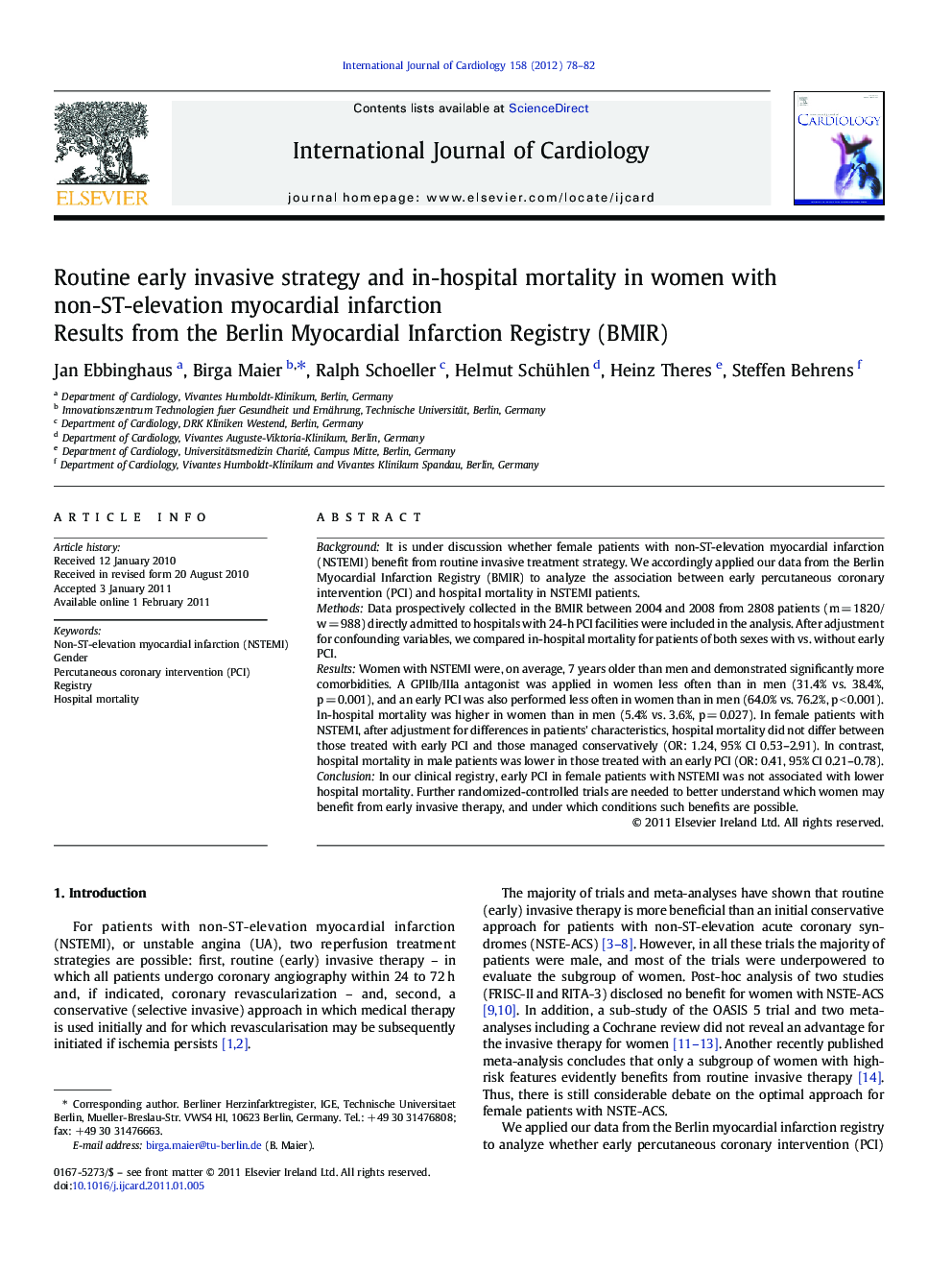| Article ID | Journal | Published Year | Pages | File Type |
|---|---|---|---|---|
| 5978446 | International Journal of Cardiology | 2012 | 5 Pages |
BackgroundIt is under discussion whether female patients with non-ST-elevation myocardial infarction (NSTEMI) benefit from routine invasive treatment strategy. We accordingly applied our data from the Berlin Myocardial Infarction Registry (BMIR) to analyze the association between early percutaneous coronary intervention (PCI) and hospital mortality in NSTEMI patients.MethodsData prospectively collected in the BMIR between 2004 and 2008 from 2808 patients (m = 1820/w = 988) directly admitted to hospitals with 24-h PCI facilities were included in the analysis. After adjustment for confounding variables, we compared in-hospital mortality for patients of both sexes with vs. without early PCI.ResultsWomen with NSTEMI were, on average, 7 years older than men and demonstrated significantly more comorbidities. A GPIIb/IIIa antagonist was applied in women less often than in men (31.4% vs. 38.4%, p = 0.001), and an early PCI was also performed less often in women than in men (64.0% vs. 76.2%, p < 0.001). In-hospital mortality was higher in women than in men (5.4% vs. 3.6%, p = 0.027). In female patients with NSTEMI, after adjustment for differences in patients' characteristics, hospital mortality did not differ between those treated with early PCI and those managed conservatively (OR: 1.24, 95% CI 0.53-2.91). In contrast, hospital mortality in male patients was lower in those treated with an early PCI (OR: 0.41, 95% CI 0.21-0.78).ConclusionIn our clinical registry, early PCI in female patients with NSTEMI was not associated with lower hospital mortality. Further randomized-controlled trials are needed to better understand which women may benefit from early invasive therapy, and under which conditions such benefits are possible.
